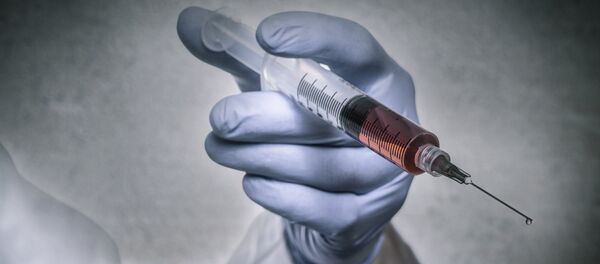The lawsuit filed in Baltimore against Johns Hopkins University is seeking $1 billion in damages for the subjects of the experiment, their children, and spouses. It alleges that prominent members of the institution played an instrumental role in the experiments by controlling its panels and advising the federal government on research spending. According to a 2011 report on the experiments, a Johns Hopkins doctor chaired the panel of a National Research Council committee dedicated to venereal diseases which oversaw the research’s design and funding.
“The people involved were icons at Johns Hopkins Hospital and the Rockefeller foundation," The plaintiff’s attorney, Paul Bekman said. "They knew about it, they were architects of it, they planned it, they sought funding for it, they kept it under the radar. Hopkins provided syphilitic rabbits that were used to inject individuals with syphilis."
The lawsuit claims that in addition to overseeing the experiments, Johns Hopkins ensured that the details were concealed from the public.
“They kept a lid on it, making sure that nobody knew about it, and they actively deceived these people. There was no consent obtained for and from anybody,” said Bekman.
For their part, Johns Hopkins released a statement calling the experiments in Guatemala “deplorable,” but the University’s lead Council referred to the suit’s allegations as “baseless.”
"It was not a Johns Hopkins study. Johns Hopkins did not initiate, pay for or direct this study. It was a federal government study," Robert Mathias said. "Everyone who knows anything knows that when doctors and scientists are acting on those committees they are acting on behalf of the federal government and not on the behalf of the research university or hospital they came from.
Also named as defendants in the suit are the Rockefeller Foundation and the New-York based pharmaceutical company, Bristol-Myers Squibb. In a similar vein to Johns Hopkins, the Rockefeller said in a statement that while the experiments were “morally repugnant,” they will oppose the lawsuit as the foundation "did not design, fund, or manage any of these experiments, and had absolutely no knowledge of them.”
Revelations about the experiments in 2010 prompted President Barack Obama to express his “deep regrets” and apologies for the research. Then-Secretary of State Hilary Clinton and then-Secretary of Health and Human Services Kathleen Sebelius issued similar apologies.
In 2011, plaintiffs attempted to sue eight US government officials over the same study, but a federal judge dismissed the case on the grounds that the government could not be held liable for actions in another country.



